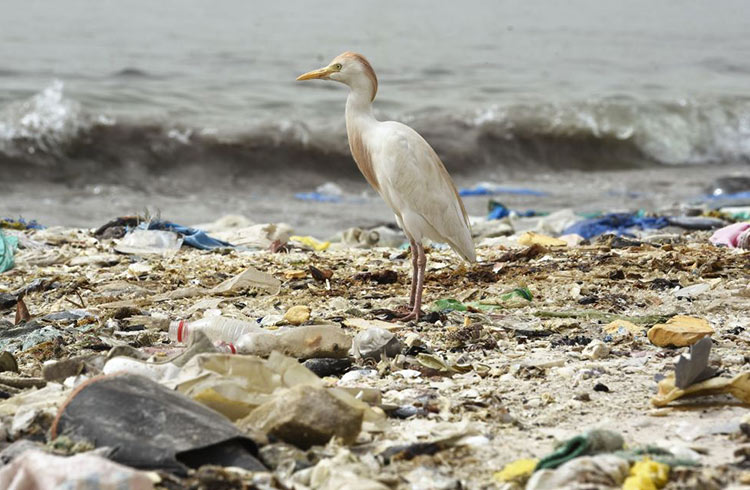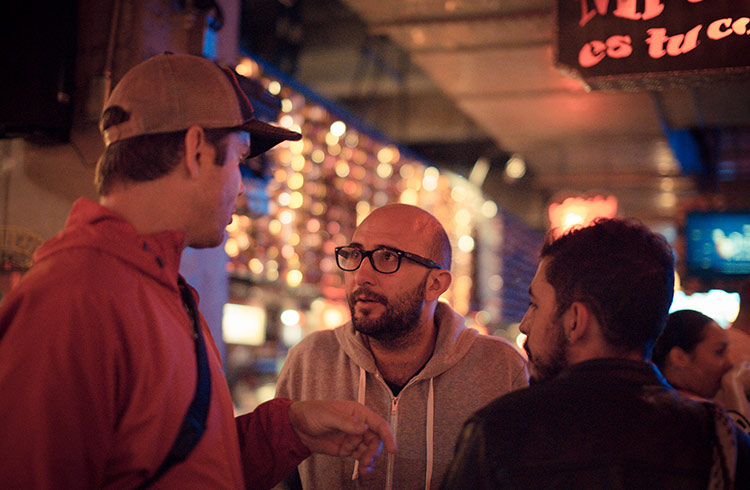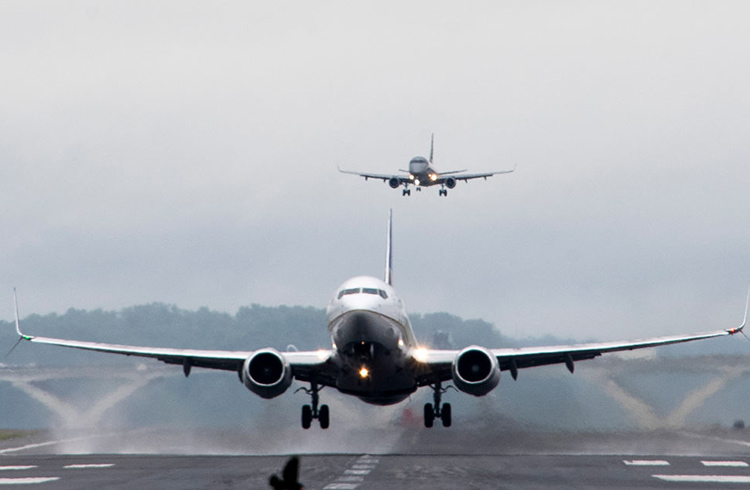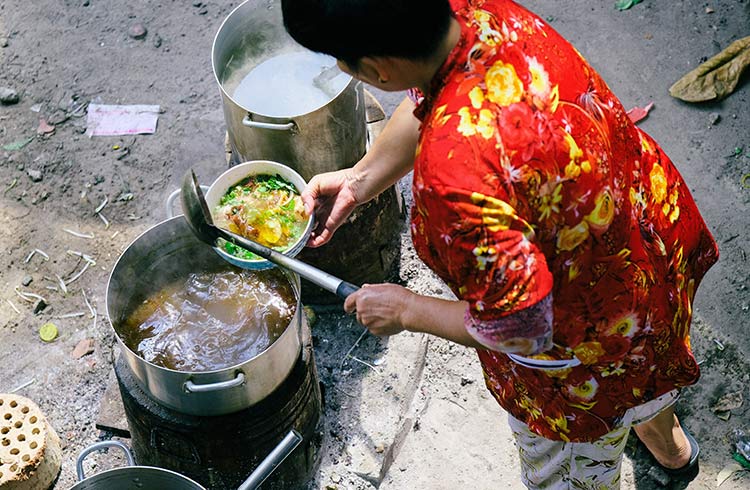11 Easy Ways To Avoid or Use Less Plastic When You Travel
From using bamboo toothbrushes to avoiding airline food, Conor Purcell examines how we can reduce the impact of single-use plastic when we travel.
 Photo © Getty Images / SEYLLOU
Photo © Getty Images / SEYLLOU
- How bad is the ocean’s plastic crisis?
- Where is all the plastic coming from?
- What can travelers do to help?
- What can you do when you get home?
Picture the scene: the sun dips below the horizon in a remote tropical idyll as you drink in the beauty of a picture-postcard sunset. Enter stage right: a tangled mass of plastic debris floating onto the shore, a few dead fish tangled up amongst it. Not quite what you had in mind, is it?
While there's been a lot written about the need to reduce our use of plastic at home, it's also important to think about how we use plastic when we travel. The unfortunate butterfly effect of pollution means that a plastic bottle discarded in San Diego can eventually find its way to that tropical beach you were relaxing on.
Luckily, there are plenty of ways travelers can help fight against the scourge of single-use plastic, and keep all those bucket-list destinations pristine.
How bad is the ocean’s plastic crisis?
As of 2019, there was an estimated 12.7 million tonnes of plastic floating in the world's oceans. According to Greenpeace, that’s the equivalent of one truckload of rubbish being emptied into the ocean every minute. The most infamous area is the ‘Great Pacific Garbage Patch’ which is exactly what it sounds like – a massive, floating accumulation of trash, the largest on the planet. Between California and Hawaii, it covers more than 617,000 sq miles (1.6 million sq km), although its density varies. And it’s not the only one. There are similar – albeit smaller – so-called garbage patches in every ocean on the planet.
The effects are long-term and, predictably, devastating. Sealife is harmed in a variety of ways: through entanglement, ingestion and starvation. The chemical build-up of the debris also harms the underwater habitat, and ultimately it damages communities that live by the sea, harming the fishing, shipping and tourism industries.
It also directly hurts birdlife. According to the photographer and environmentalist, Chris Jordan, nearly all of the 1.5 million Laysan albatrosses that inhabit the Midway Atoll, in the North Pacific, have plastic in their gastrointestinal tract. About one-third of their chicks die, many due to their parents unwittingly feeding them plastic. The figures are staggering. The Sea Turtle Conservancy, the oldest sea turtle conservation group in the world, estimates more than a million marine animals are killed each year due to plastic in the ocean.
Where is all the plastic coming from?
The non-profit 4Ocean, set up by two surfers in 2017, reports that “up to 90 percent of ocean plastic comes from a land-based source and enters the ocean through a river mouth.” Since 4Ocean launched, it has removed more than 4.5 million lbs (2 million kg) of trash from coastlines around 27 countries. It funds the clean-ups through the sale of a range of products and each item sold funds the removal of 1lb (0.45kg) of trash.
4Ocean says that “Man-made causes (such as improper disposal or littering) and natural causes (such as storms, rain, and wind) contribute to ocean plastic pollution.” The key to solving the crisis? “To continue educating the public about the root causes and impact of plastic in the ocean.”
What can travelers do to help?
Pack a water filter
In countries where the local water isn't safe to drink, the default solution is to buy bottled water. However, more than 20,000 plastic bottles of water are bought every second worldwide. While travelers make up a small fraction of that total, buying a reusable water bottle with a filter means you can use it before, during and after your trip. The LifeStraw bottle claims to remove 99.99% of bacteria and is no bigger than a regular water bottle.
Refuse airline food
Airlines love plastic. Everything from the rock-hard bread rolls to the stew-like substances they serve up is wrapped in the stuff. While bringing your own food in a reusable lunchbox helps, it’s more effective to contact the airlines directly (or via social media) and ask them about what they are doing to reduce their plastic usage. Some airlines are taking this seriously, and all airlines care what their customers think about them. They won’t make this a priority unless you do.
Don't use single-use plastic in hotels
Hotels love their tiny bottles of shampoo and shower gel. And, to be honest, so did I, until I started thinking about the effect all that plastic was having on the world’s sea life. Bring your own reusable travel-sized toiletries; use a combined shampoo and conditioner, and use soap instead of shower gel. Talk to the hotel manager about their plastic use policy; don’t hector them, but suggest alternatives – much of this is about awareness. When leaving reviews on the likes of TripAdvisor, mention their plastic usage – for example, do they have cotton buds individually wrapped in plastic? Call them out on this in your reviews – they care what’s said about them online, so you can use this to your advantage.
Use a bamboo toothbrush
Yep, bamboo toothbrushes are a thing, and yes, they look pretty cool. Since launching on Earth Day 2013, Woo has sold more than two million bamboo toothbrushes, made from natural, biodegradable bamboo. The environment and your inner panda will thank you.
Pick up trash in remote areas
While many travelers make an effort to leave places of natural beauty the way they found them, some don't. Win some karma points by picking up trash wherever you find it, in deserts, forests, and mountains. Return it to civilization (and the nearest recycling bin), and you will have made the natural environment more beautiful, and safer for the wildlife that lives there.
Buy quality products
If it is of a higher quality, it will last longer which means fewer will be discarded, which means – you guessed it – less trash. A high-quality backpack or pair of hiking boots can last a decade or more, which is better for your pocket in the long run, and much better for the environment.
What can you do when you get home?
Reduce your use of plastic
Keep using that filtered, reusable water bottle and those bamboo toothbrushes. Those good habits shouldn't stop just because you are back home.Reuse and recycle
Figure out where most of your plastic comes from. Work out how you can reduce the amount you use – every little helps.Talk to local businesses about using less plastic
Leave reviews on the likes of Yelp and Google Maps; let the owners know that reducing their use of plastic will ensure you return; Two relatively easy wins: suggest they use compostable coffee cup lids and stop using straws altogether.Lobby your local politicians
Politicians often only act when it's in their own interests; so make sure and let them know that your vote depends on them pushing for less plastic usage.Volunteer
Take part in ocean and beach clean-ups organized by organizations such as the Ocean Conservancy and 4Ocean. Check if there are any in your local area – if there aren’t, why not start one?
Related articles
Simple and flexible travel insurance
You can buy at home or while traveling, and claim online from anywhere in the world. With 150+ adventure activities covered and 24/7 emergency assistance.
Get a quote


9 Comments
Most of the plastic waste floating in oceans is from third world countries. The US by comparison is producing very little of that. I'm getting pretty tired of hearing that its up to Americans to save the world from global warming and every other environmental ill, when the rest of the world is largely at fault.
I appreciate you highlighting this issue and action steps. We use shampoo and conditioner bars and store them in reusable tins which also makes them a breeze to take through airport security.
Travellers can definitely pick up a plastic bottle or two when in remote destinations and benefit from clearing area for a nice photo and safe and healthy environment
@Jim, I don’t know how much plastic the US produces or consumes in comparison to third world countries, but do you really think Americans shouldn’t be doing more than we currently are to reduce our plastic consumption? Continuing our consumption at the current rate it is simply not sustainable. Period. I think that’s the message this article is trying to portray.
When travelling, especially along coastlines, I’ve started scanning local events calendars for beach clean-ups and join them if I can. If no organized clean-up is happening, I just take an extra bag with me to the beach and do a bit of “freelance” clean-up. Sad how much plastic I recover.
We can’t blame Asian countries for plastic rubbish when the western countries are the ones that are flogging their goods there. I’ve person witnessed harpic toilet xx cleaner in plastic bottles packed in boxes being carried up the mountains in Nepal on backs of mules. They don’t need this crap. Coca Cola, Fanta, sprite single use bottles and water is polluting Nepal so that westerners can get their fix. Don’t buy it! Western company greed just making money! Disappointing!
Why is everything about blame Jim? Everyone can do a littler bit more and every little bit helps. It doesn't matter what anyone else does or does not do, just be a good creature and take action where it is your power to do so. I am ashamed to say that I have been dreadfully wasteful and profligate throughout my life but I can't change the past, only the future. In terms of what countries do or do not do, I was appalled to find that the UK was shipping its garbage to Asia where it was dumped in the jungle because these developing countries were desperate for money to attain anything just slightly closer to our quality of life. What other things are happening about which I don't have knowledge. Be understanding and be empathetic to the lives that other people have to live by nothing more than an accident of birth.
We are now semi-permanent travellers and never by air but in all honesty that's because travel for us is about the journey and not the destination (although it's great that we don't add to the unfairly subsidised airline fuel industry). We donated most of our belongings to charity and what a relief it was to unburden ourselves of all those things that just don't matter. We also mend things now and don't just discard and buy new. I put a new zip in a fleece last night and it's almost as good as new but a few years ago I would have said that I could not be bothered.
Be bothered, be kind and be empathetic. What you and I do individually is just a drop in the Ocean but every drop spreads. I'm keen that the rest of my life spreads far more good than bad.
Apologies for the rant and here ends the sermon. :-)
A word of caution, as the article mentions LifeStraw: don't just assume that a filter is good worldwide. Many filters DO NOT filter virus, and often LifeStraw doesn't. Always read carefully. There are similar solutions that filter virus as well as bacteria and protozoa (last time I checked, watertogo was one brand doing so). This may be required in certain countries, especially where tap water is not safe to drink.
The #1 way to use less plastic when travelling is clearly by packing a reusable water bottle. This alone should help prevent you from buying plastic water bottles every day.
There are a few companies that I'm aware of: Bead the Change and 4Ocean who are using recycled plastics (rPET) in their products. It's nice to see some companies start to use recycled plastics and hopefully more will follow suit in the near future.